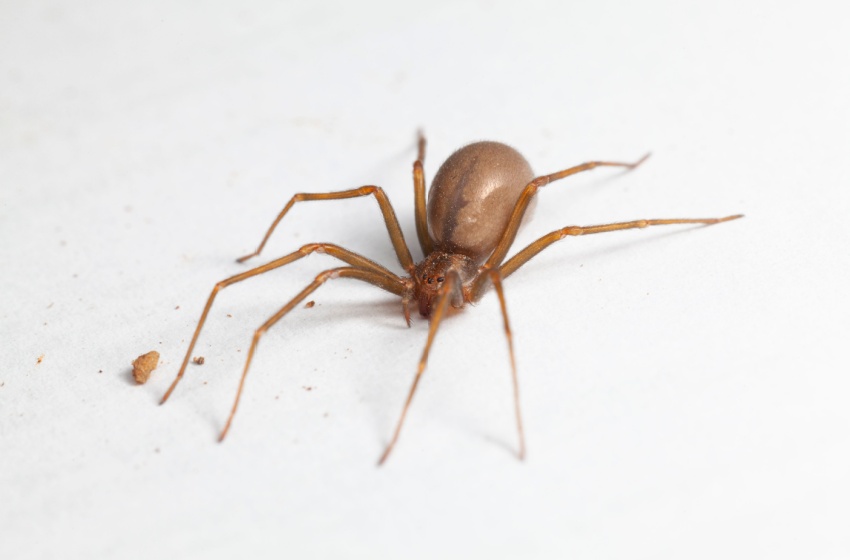Why Spiders Are More Active in July and What You Can Do About It

As summer rolls in, you might notice more uninvited guests lurking in the corners of your home—spiders. While some might dismiss them as harmless, an uptick in spider activity can be unsettling, especially if their numbers start to grow. Understanding why spiders become more active in July and knowing how to keep them under control can help you maintain a comfortable, pest-free home.
The Science Behind Increased Spider Activity
Summer provides the ideal conditions for spiders to thrive, and their presence often becomes more noticeable during this time. One of the main reasons for this spike is their breeding season—many species mate in the warmer months, leading to a higher population. Additionally, the rising temperatures force spiders to seek refuge in cooler, shaded spaces, including inside homes, basements, and garages. This movement makes them more visible to homeowners who might not have noticed them as much in previous months.
Another key factor is the abundance of prey. Insects flourish in summer, giving spiders a reliable food source. With more food available, they have little reason to leave their established locations, increasing their activity around homes and outdoor areas.
Common Summer Spider Species
During the warmer months, certain spiders become more prevalent in homes and outdoor spaces. Some of the most common species you might encounter include:
- Black Widow: Recognized by their glossy black bodies and red hourglass markings, these venomous spiders often hide in garages, woodpiles, and dark corners.
- Wolf Spider: Unlike web-building spiders, wolf spiders actively hunt their prey and can often be seen scurrying across floors or walls.
- Orb-Weaving Spiders: These spiders create large, intricate webs in gardens, porches, and areas with good insect activity.
- House Spiders: The most commonly found indoor spiders, they weave small webs in corners, windowsills, and less-disturbed areas of the home.
- Brown Recluse: Known for their shy nature, brown recluse spiders prefer undisturbed spaces like closets, attics, and behind furniture.
- Jumping Spiders: These small, energetic spiders don’t rely on webs for hunting. Instead, they leap to catch their prey with precision.
Why Spiders Love Your Home
Spiders are excellent at finding shelter, and if they consider your home a suitable place to reside, they’ll settle in quickly. Homes with excess moisture, such as those with leaky pipes or high humidity levels, can become spider-friendly environments. Many species thrive in damp conditions, so basements, crawl spaces, and laundry rooms can be prime spots for infestations.
Unsealed entry points—tiny gaps around doors, windows, and vents—can also invite spiders indoors. These spaces are easy access points, making it simple for them to move from outside to inside without much effort. Additionally, cluttered storage areas like attics and garages provide perfect hiding spots for spiders, as they prefer dark, undisturbed places to spin webs and hunt.
How to Keep Spiders from Taking Over
There are several ways to prevent spiders from claiming your home as their summer retreat. Keeping living spaces clean is one of the most effective strategies. Regular vacuuming eliminates webs, eggs, and any spiders hiding in corners. Reducing clutter, especially in storage areas, makes it harder for them to find places to hide and breed.
Sealing cracks and entry points can also deter spiders from entering. Checking door frames, window edges, and vents for gaps and blocking them with caulk or weather stripping reduces their access. Another useful tip is keeping outdoor lights off whenever possible—light attracts insects, and where insects gather, spiders follow.
For those looking for a natural approach, essential oils like peppermint and citrus are known to repel spiders. Spraying diluted oil mixtures around windows, doors, and baseboards can serve as an effective deterrent without using harsh chemicals.
Getting Expert Help for Stubborn Spider Infestations
While DIY methods can be helpful, some infestations require expert attention. If you notice an increasing number of spiders despite your prevention efforts, it may be time to contact a pest control professional. Recurring spider problems, especially if venomous species like black widows are spotted near living areas, indicate that a deeper pest issue needs addressing.
At San Joaquin Pest Control, we understand the frustration of dealing with unwanted pests. Our expert team provides reliable solutions tailored to your specific needs, ensuring your home remains spider-free all summer long. If you’re looking for professional pest management services, contact us today to learn how we can help.


.webp)


